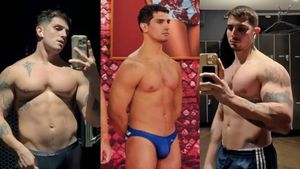Later this month marks the one-year anniversary since Jason Collins became the first active player in major professional sports to come out, and since then an array of male and female athletes have followed his lead. From Michael Sam to Derrick Gordon, players have found the courage to be open and out, even amidst the notorious fear of locker room culture. That fear, however, is still warranted, and as University of Arizona swimmer Lauren Elizabeth Neidigh describes in her article featured on Outsports, it can cause a great deal of hardship for closeted athletes.
In the piece, Neidigh describes her decision to come out, despite fearing a negative response from teammates and friends. For a person with a strong focus on fitness and training, Neidigh realized staying closeted was affecting her body and her health. She writes, “‘The overwhelming emotional damage that I’m inflicting on myself by holding all of this is in taking too much of a toll on me,’ I told my cousin. ‘I feel physically drained and I can’t think clearly or focus on anything. This isn’t a healthy way for me to live.’”
As coming out stories often (but certainly not always) do, Lauren’s ended happily, as her hesitation to come out disproportionately reflected her positive support structure. She was almost universally accepted by her teammates and family and now admits to living a happier, fuller, more honest life. Undeniably, however, homophobia and athletics continue to, in some capacity, go hand in hand, and as the LGBT community inches towards equality and universal acceptance, stories like Lauren’s remain a necessary stepping-stone to break down misconceptions about gay athletes. You can read her entire article on Outsports.































































































































